Collaborating on patient self-monitoring
Patients report their own symptoms in a new project at Ahus, in which the university hospital collaborates with Roche and Kaiku Health.
A new project with 15 lung cancer patients has started this fall at Akershus University Hospital (Ahus), one of Norway’s largest hospitals, just outside of Oslo. Both the patients and the hospital staff are testing a new digital patient monitoring and management solution from the Finnish health technology company Kaiku Health, where the patients themselves are to report their symptoms and health conditions.
The project is a successful collaboration between patients and hospital staff at Ahus, the company Roche, and Kaiku Health. They are all members of Oslo Cancer Cluster.
Satisfied patients
“So far we have received almost only positive user experiences. Patients are only asked to log symptoms they have had and do not have to consider all kinds of possible symptoms they might have. That helps them and our impression is that the patients are satisfied with the self-logging tool we are testing,” said Anne Edvardsen, Project Leader and Department Leader at the Lung Department at Ahus.
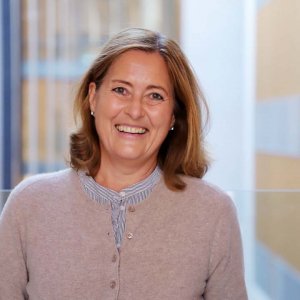
Anne Edvardsen. Photo: Ahus
Kaiku Health is a digital health interventions platform that provides patient-reported outcomes, monitoring, and intelligent symptom tracking. Currently, it is used in more than 75 clinics in Europe and America, helping clinicians provide optimized care with early interventions and personalized patient support.
Digital symptom management
“Digital symptom management is shown to improve patients’ overall survival and quality of life. While cancer immunotherapy has been shown to advance treatment outcomes of for example lung cancer patients, it has also introduced a new kind of safety profile. Companion digital health solutions can optimize symptom management and timely education for patients. In addition, clinics benefit from the use of the service, as digital therapy support can optimize the use of healthcare resources as well as processes in the daily clinic routine,” said Ann-Sofie Andersson-Ward, Global Strategic Sales Manager in Kaiku Health.
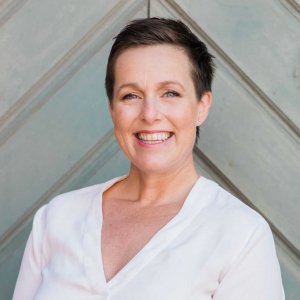
Ann-Sofie Andersson-Ward. Photo: Kaiku Health/ Kajsas foto
In Nordlandssykehuset, a smaller hospital in the north of Norway, a similar digital patient monitoring, also from Kaiku, is already a part of the regular patient treatment.
“By providing digital symptom management along with the capture and analysis of real-world data, Kaiku Health paves way for more personalised and value-based healthcare,” said Ann-Sofie Andersson-Ward.
Testing in several stages
Roche aims to deliver their digital patient monitoring and management solutions in an open ecosystem approach in collaboration with various industry partners and solution providers, such as Kaiku Health, and has done a prior pilot project with Kaiku Health in Germany, Finland, and Switzerland.
The results from this first pilot were published in Journal of Medical Internet Research in December last year and show a high user satisfaction and improved clinical care besides other benefits and a few challenges. You can read the article here. https://www.jmir.org/2020/12/e18655/
“With our current collaboration with Ahus, Roche aims to deliver industry-leading Digital Patient Monitoring and Management solutions that improve outcomes that matter to patients, such as quality of life and overall survival, for individuals receiving therapy for advanced or metastasized cancers. This can be achieved by empowering patients to continuously report symptoms from any location using mobile solutions and enabling healthcare professionals to intervene early before symptoms worsen, tailor care plans, and make effective treatment decisions. By using solutions that are seamlessly integrated into clinical care, it would also optimise healthcare resource utilization. In addition, we’re also exploring user experience of the solution alongside understanding how we can support broad adoption and adherence to the solutions,” said Fabienne O. Villars, Country Medical Manager for Lung in Roche Norway, and adds that it is also an important project to explore local requirements and regulatory needs.
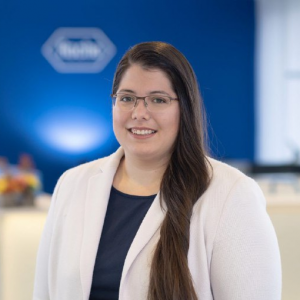
Fabienne O. Villars. Photo: Roche
The current project is named KAISER and will run until March 2022.
Better equipped to master symptoms
“An advantage is that we can monitor the patients during the entire treatment and systemize our experiences. This kind of monitoring of symptoms through digital platforms is important to increase the understanding the patients have of their own health. When they participate in monitoring their own symptoms and changes in symptoms, they are better equipped to master their symptoms, with assistance by healthcare professionals,” said Anne Edvardsen.
The patients can use the tool as a type of diary for symptoms from cancer treatment, like for example fatigue, and the care team can look for patterns to check if treatments are working well. The hospital staff is learning how to react to the reports and whether they should follow up with the patients more closely based on the reported symptoms.
Useful in the future
“It has been a good collaboration where everyone has contributed to solving this puzzle, which takes a lot of effort ensuring privacy and data security in a large hospital like Ahus,” said Anne Edvardsen.
“The work Ahus has done in collaboration with us will become useful in the future for sure –for other hospitals, companies, and for the patients themselves,” said Villars.
Read more
Inven2 has contributed to initiating the project in Norway and has written about it in Norwegian. Read the Norwegian article here: https://www.inven2.com/prover-ut-digitalt-verktoy-for-pasientoppfolging-i-kliniske-studier/
Cluster Collaborations
In this article series, called Cluster Collaborations, we want to highlight the fruitful collaborations in the cluster, underlining the very essence of what Oslo Cancer Cluster is all about, from cancer research to cure.

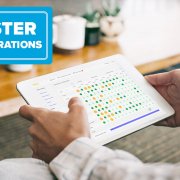 Kaiku Health
Kaiku Health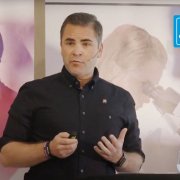
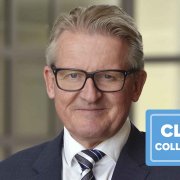 LINK Medical
LINK Medical






